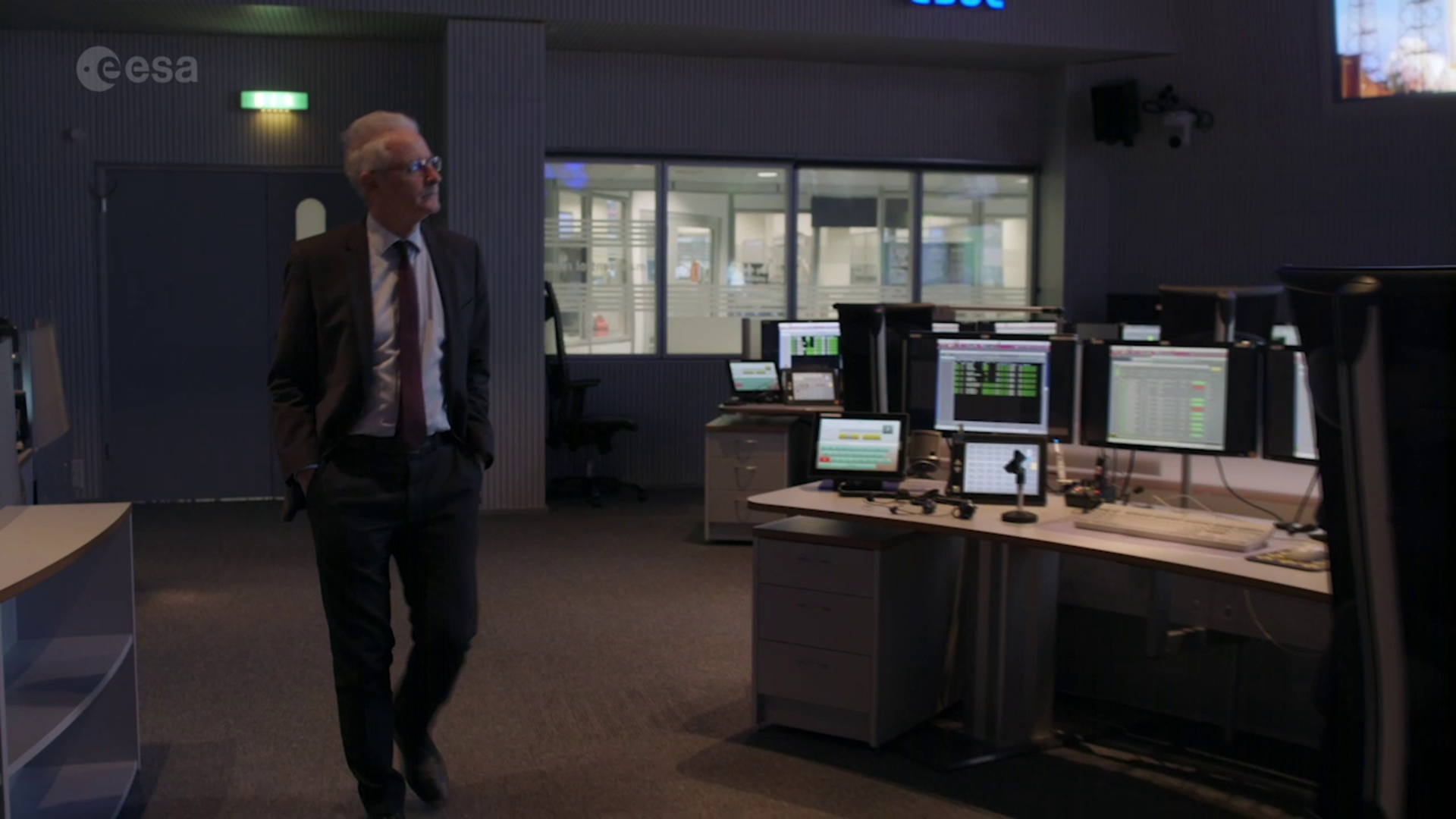ESA Masterclass full series: Leadership at Mission Control
The ESA Masterclass series brings leading figures in the Agency to the fore, from the cutting edge of space exploration. Join them as they share their journey, along with decades of experience, knowledge and lessons learnt during their eventful careers in space.
In the first of the Masterclass series, we head to Darmstadt, Germany, where epoch-making robotic space exploration missions have been flown under the watchful eye of one man, Paolo Ferri.
Introducing Paolo Ferri

With 36 years’ experience at the European Space Agency, Paolo Ferri was until September this year responsible for mission operations at ESA’s ESOC Operations Centre in Darmstadt, Germany.
Paolo has played a leading role in ensuring the success of ambitious missions like Eureca, Cluster, Venus Express and the epoch-making Rosetta – humanity’s first landing on a comet.
In five episodes of ‘Leadership at Mission Control’, Paolo takes us through the major events in his career, covering cornerstone missions, first attempts, overcoming technical challenges, building diverse teams and solving the unexpected problems that arise with even the best-planned missions.
Paolo on thinking outside the box


Access the video
Once a spacecraft is launched to space, that’s it. Thousands or millions of kilometres away, there can be no manual fixes, on-the-fly upgrades or last-minute changes. It's now up to teams at Mission Control to use the tools and technologies at their disposal, as well as their own knowledge, teamwork and creativity to overcome the inevitable problems faced by any mission in space.
In ‘Thinking Outside the Box,” Paolo describes three missions that suffered unexpected and potentially fatal flaws: Smart-1, Cluster and Exosat, and how on-the-ground knowledge, innovation and ingenuity prevented their untimely demise, allowing the science to go on.
On communication and teamwork


Access the video
Throughout the life of every mission, radio signals are transmitted between stations on ground and the spacecraft orbiting Earth, or voyaging across the Solar System. These signals contain instructions and commands sent up from Mission Control, and beam down data such as views of our planet collected by high-tech instruments on board.
However, this ‘conversation’ between space and Earth is only as good as the conversations taking place on Earth, where effective communication and teamwork are fundamental. Effectively passing on information, experience and challenges are the key to success during critical operations, as teams evolve over the life of decades-long missions, and between different mission teams themselves.
In his second masterclass, Paolo Ferri illustrates the importance of effective communication with the help of Exosat, a flipchart and a ‘blind’ spacecraft, Venus Express.
On leadership, coaching, learning


Access the video
As space missions have become more complex, the teamwork needed on the ground has also become more sophisticated and challenging. Over almost four decades at the forefront of Europe’s voyages in space, Paolo Ferri went from Operations Engineer on the Eureca mission to Operations Manager of the four-spacecraft Cluster mission and then the Rosetta mission, followed by serving as Flight Director on Rosetta, Venus Express and Goce. His career has been capped off by eight years as Head of Mission Operations for the Agency, overseeing all of ESA’s robotic mission operations.
In his third masterclass, Paolo shares what he has learnt going from an engineering expert with complete and specific knowledge of a single mission, to being responsible at a senior manager level for the success of dozens of missions operated by international teams each as diverse, unique and complex as the spacecraft they fly.
On working under pressure


Access the video
Understanding the laws of the Universe is fundamental to flying missions in space. But one spacecraft under Paolo Ferri’s care seemed to be particularly susceptible to Murphy’s law – ‘Anything that can go wrong, will go wrong.’
In 1992, ESA’s first-ever reusable satellite, Eureca, was delivered into orbit (and later retrieved) by a NASA Space Shuttle. It spent just under a year in orbit, and presented a plethora of problems from Day 1. While it was ultimately successful, Eureca required constant care from engineering teams on ground as well as hands-on help from astronauts in orbit.
As Deputy Operations Manager for the mission, Paolo Ferri explains in his fourth masterclass how this intense period acted as a ‘school’ for him, as he and his team were put under immense pressure by this orbiting ‘box of surprises’ constantly on the edge of catastrophe and mission failure.
On the culture at Mission Control


Access the video
Step inside the Main Control Room at ESOC, ESA’s European Space Operations Centre in Darmstadt, Germany, and one thing becomes immediately clear: teams that operate space missions are highly hierarchical, and the Flight Director is indisputably in charge.
How does this work, and why is this the case? In the last of his Masterclass series, Paolo Ferri delves into the culture of operations, from written rules and procedures to equally important unwritten principles that guide the day-to-day working lives of those flying Europe’s spacecraft.
Paolo explains that on rare occasions, an internal battle takes place when protocols, procedures and flight rules don't seem up to the task, and someone must assume the huge responsibility of deciding whether or not they need to be violated to keep a mission functioning.














 Germany
Germany
 Austria
Austria
 Belgium
Belgium
 Denmark
Denmark
 Spain
Spain
 Estonia
Estonia
 Finland
Finland
 France
France
 Greece
Greece
 Hungary
Hungary
 Ireland
Ireland
 Italy
Italy
 Luxembourg
Luxembourg
 Norway
Norway
 The Netherlands
The Netherlands
 Poland
Poland
 Portugal
Portugal
 Czechia
Czechia
 Romania
Romania
 United Kingdom
United Kingdom
 Slovenia
Slovenia
 Sweden
Sweden
 Switzerland
Switzerland































